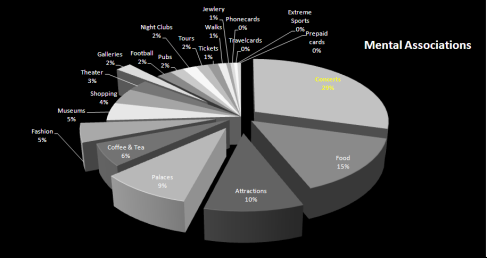
If you ever wondered for what purposes one may use AI, I have an answer. Politics and more specifically the Law-Making part of it.
There are two aspects of Politics that would benefit from an AI intervention. Social need mapping and Law-Making Social impact analysis none of which has any known solutions today. Attempts to introduce AI to Politics in the form of an aggregator of the views of non-elective parties (see Synthetic Party of Denmark) fall short, in my opinion, of the true potential of the AIs.
The AIs, I am referring to, are not the ChatGPT-type generative ones but rather the Chaos Theory-based Predictive ones. These we use in Socio-Economics ( a meta version of Adam Smith’s Political Economy) whereby the unpredicted economic behaviour of a group of actors in question is influenced by the relative strength of the institutions they observe creating this way Chaotic Behaviour Maps (CBMs) that differ with any statistics/game theory based one.
Allow me to escape the jargon and explain briefly in simple terms the mechanism before I analyse each, in case you dislike or have no time to read lengthy papers.
The short version is this.
Provided we can identify the boundaries of any chaotic or complex system we can define the set of data we need to collect.
We can, subsequently, by analysing the data, identify the structural synthesis of the biggest sets that appear at least twice. These we can call in the absence of another word the “truth” of the specific system. We know, through the analysis, at this point the constituent elements of data of these large datasets.
And here is the beauty and the “simplicity” of the whole approach because in regards to:
· The social needs mapping all one (see an AI) needs to be doing is “translate” them (the needs) into sets using as input people’s economic behaviour.
· Lawmaking, do the same, “translate” the “letter of the Law” into the same type of sets.
And that is all.
Now we can leave it to the AI to:
· In regards to the first (social needs mapping) compare the new sets with the actual patterns of the system to see the degree of similarity or ideally of absolute correspondence and disregard the rest
· Perform a social impact analysis. One of the ways to achieve this is to allow the AI to predict all probable extensions of the largest in existence dataset of the chaotic system and compare these new sets with the ones expected to be created by the new Law.
It will be interesting to listen to parliamentary sessions where the Political Parties AIs voice the analysis made, trying to explain mathematically their versions of the “truth”, having an AI as a Political Party’s Speaker or even better the Political Party Leaders’ debates prior to an election. I personally look forward to the day they will happen.
Now the long version in case you are actually interested and you do want to know how this can become a reality.
Societies work through a complex set of intertwined unwritten rules. We call them social institutions.
Despite the definition of institutions as being the end result of Political choices, there is an abundance of Historical Institutionalism research showing that social institutions predate Politics, at least in the form we know them today. It is safe thus to say that the opposite is true and Political Choices are influenced by the underlying institutions and to a degree predictable!
Social institutions are the end result of our combined societal wisdom, the best practice of previous experiences of all of us developed through a cause/effect analysis into a set of unwritten rules.
Institutions were built gradually from the bottom up, starting from our genetics-driven instincts grouped into simple notional structures that became over time complex ones, similar to our DNA, with some modern ones comprising thousands of notionally interconnected elements.
Being unwritten makes them, though, prone to “conditional” interpretations. Our Democracy for example is one of them that is an institution interpreted “freely” by every Political Party. One can easily research the vast spectrum of Democracy manifestations around the globe.
The discrepancy of interpretation in the past, created the need of the Law, itself nothing else but a social institution. In its turn, Lawmaking became a common practice and was institutionalised as an idea.
The need for Lawmaking created the need for Law Makers and we ended up with the elected Politian Law Maker, with the all-known results and here lies today’s problem.
The maths that can assist any politician to
· map the actual social needs of the people he is supposed to represent or
· based on that and his “political beliefs” design new Laws that will work
do not exist!
The problem is even harder for any Politician or their Consultants/Experts than it appears as institutions are in constant flux. As Heraclitus said «Τα πάντα ρει» “everything changes”.
No Law-Maker can predict the future and progress is relentless. The “sandboxes” to test new emerging technologies and the constant change of existing Laws are evidence of the ever-happening failures.
Politics ended up being the art of persuading others that a predefined outcome is to be expected even if none can actually produce a robust societal impact analysis on socio-economic and institutional levels or calculate how this can be achieved when future external and internal influences are yet unknown.
On the other hand, can we really second guess the good intentions of all Politicians/lawmakers even if history has shown that the expected result of their policies is very rarely materialised when we know that the maths needed for them to do so has not been invented yet?
Well, I have good news for all. It appears there is a solution. Let me explain.
Societies are chaotic systems, consequently one is expecting to see patterns emerging within it time given. Some of them axiomatically will represent the basic constituent elements (sets) of all institutional forms.
Despite, though, the axiomatic nature of societal institutional patterns emerging, at this point one stands with one leg on the hypothesis fields and with the other on probabilistic ones, but the path is promising. To my knowledge the notion that societal chaotic patterns are the constituents of social institutions is new.
If one is to follow down this notional path the fact that the maths underline societal institutional change does not exist, is no more an obstacle. Think of it as solving maths problems using geometry. Using this approach, we can predict institutional evolutionary trajectories and create policies that can actually work (fit neatly within these trajectories).
But there is a catch…we will not need any more of the type of Politicians we know and possibly the Political Parties at least in their current formats. It will be fun…
Here is how the new probable form of Politics will work.
All complex systems have boundaries. The same stands true for Chaotic structures. We do not actually have one Chaos but many and they are constantly evolving and changing over time. Economic behaviour in macroeconomics is based nowadays mostly on assumptions made as the result of observed human behaviour interpreted through statistics.
The problem with assumptions is that the end result of a series of them is the multiplication of the probabilities of them coming true. If for example, you increase interest rates as a Central Bank you expect your inflation to be going down. But this is partly accurate if only all else remains stable for a predefined period of time for the policy change to take effect. If the expected effect on the economy is to happen within 10 weeks, do we really expect the world to stand still until this does? How about the personal circumstances of each one of us or the “non-allergic” internal reactions of the system that will counteract the policy?
If the first assumption is 90% accurate the second 60% and the third 30% then the probability of the success of the policy is 0.9×0.6×0.3=0.162!
Now that you realise the size of the problem let’s return to our Chaos.
I argue that if instead of using statistics and making assumptions we use the same data sets to “describe” and “bound” the chaotic then, we can actually identify its local “axiomatic” truths, the larger patterns structures that are, that have a least one identical copy of themselves (memeplexes).
Now we are in a good place.
We are capable now, of identifying the structural synthesis of these biggest sets on an elemental basis and learning how they evolved. These large sets we can call in the absence of another word the “truth” of the specific complex system/chaos.
Remember that we know as well at this point the constituent parts of data of these large structures, the elements (see smaller sets) that comprise them and by knowing that, the most probable ways they will evolve (grow or mutate). This can be achieved, for example, by identifying the probable order of interconnections (like chemical bonds) and the probable order they can occur and most significantly the improbable ones.
Still, we need statistics but we do not need any more to hypothesise to such a degree.
Subsequently now in regards to:
· The social needs mapping all our AIs need to be doing is “translate” them into datasets using people’s economic behaviour as the source. The added bonus of this approach is that these datasets already contain the external influences that created/influenced people’s behaviour and no additional work needs to be done in this direction. We can use any underlying model to do so with the easiest way is by using the existing sets we identified in the system.
· Law-making we do the same, “translate” it into the same type of sets. This is a complex proposition by “translation” I mean the creation of datasets that contain the socio-economic elements of the Law in question that have either similar or identical structures with those that already exist in the system long structures.
And that is all.
Now we can leave the AI to:
· In regards to the first (social needs mapping) to compare the new sets with the actual patterns of the system to see the degree of similarity or ideally of absolute correspondence. Then it needs to disregard all those that do not either correspond or have a high degree of similarity and for the qualified remaining to create a needs matrix for the next phase
· perform an impact analysis, by “seeing” if these substructures (that will be created by the Law) can be added to the largest existing in the system and the ones up to two levels below them without creating “allergic” systemic reactions. The two levels below are needed in order to see if they were applicable at an earlier stage as well and if compatible, determine if a previous state would be more beneficial than the one attempted now This is a form of Plan B in case the new attempt ends up being totally incompatible. About these “allergic” reactions, the dropping into a previous stage and they can affect these additional sets in the rest of the smaller structures, I intend to write another paper.
E Voila, the new way to AI-assisted Law-making, and a massive field of research for the new mathematicians to follow.
Will this be the end of hypothesis-based Politics? If nothing else I believe it is a step in the right direction, with a seriously positive social impact.
All type of comments is welcome.








